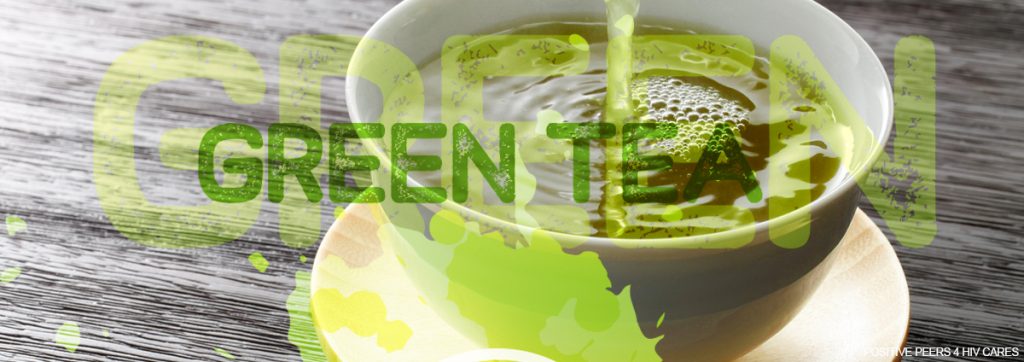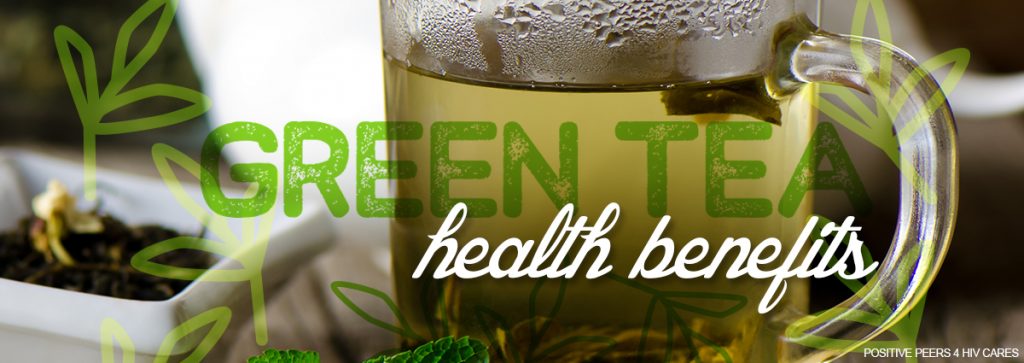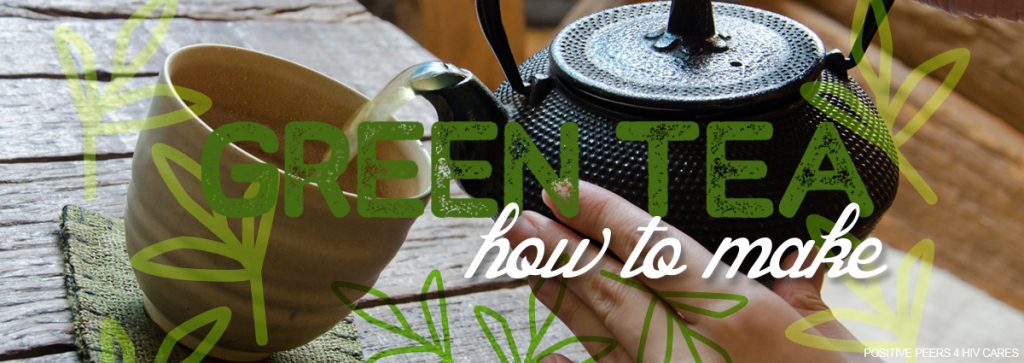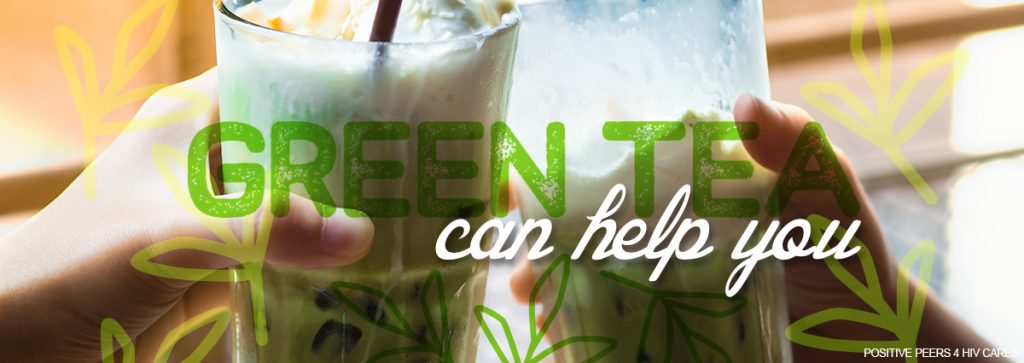
By: Ann K. Avery, MD, Infectious Disease Physician at MetroHealth Medical Center
What’s so great about drinking green tea when you’re living with HIV? (…besides the fact that it rhymes.)
Green tea can be good for anyone, regardless of your HIV status. However, it does have added benefits — scientists found a chemical component in green tea that can protect important immune cells against an attack of the HIV virus. Great news, right? Sure, but don’t get us wrong — green tea can’t cure HIV or slow the spread of the virus. The only way keep HIV under control is to take your meds every day.
So, why are we even blogging about green tea? Well, you have to drink something when you’re thirsty. And green tea is a smart alternative to stuff you might be drinking now.
Sodas packed with sugar have empty calories that can make it hard to control your weight or cause cavities in your teeth. To stay hydrated, you should probably be drinking mostly water, but green tea can be a tasty option when you’re looking for something with a little more flavor.
You can brew green tea yourself, at home, and you can drink it unsweetened, or add a little bit of honey. This gives you much more control over your sugar intake than you’d get with bottled sodas and other soft drinks.
Health benefits of drinking green tea
Asian societies have considered green tea good for humans’ health for centuries. If you ever eat at a Chinese or Japanese restaurant, you’re sure to see it on the menu. Scientific studies also suggest other health benefits in green tea, such as:
Antioxidants. In addition to what we shared before about antioxidants helping with immune response, these powerhouse compounds can help prevent cell damage that could cause health problems like cancer and heart disease.
Mood control. Green tea also can help you manage depression and anxiety. This is because of certain chemicals in the tea that increase dopamine in the brain (making you feel happy), lowering blood pressure, and increasing mental focus.
Blood flow. Green tea can improve blood flow and reduce cholesterol, both of which help keep the circulatory system healthy and prevent heart attacks.
Metabolism. Green tea may speed up the body’s process of burning calories, which helps out if you’re trying to lose weight or maintain a healthy weight.
Blood sugar. Drinking green tea can help your blood sugar stay in its normal range, which is important if you have diabetes or if you’re at risk of getting it.
Teeth. Studies suggest that a chemical called catechin in green tea can destroy bacteria and viruses that cause throat infections, tooth decay, and other dental problems.
Brain health. A study conducted with mice found that green tea kept brain cells from dying and helped restore damaged brain cells. If future studies find the same is true for humans, it could mean the tea could help protect the brain from the decline of brain cells’ functioning, such as in Alzheimer’s and Parkinson’s diseases.
How to make green tea
You can serve green tea hot or over ice. You can even add it to smoothies.
Brewing the tea is super easy: Just boil some water, pour it in a mug, drop in a tea bag, and let it steep for three to five minutes. You can even make a pot ahead of time and keep it to drink later on.
However you make it, green tea is a great alternative to sodas and other drinks.
Come join our private, stigma-free, supportive community.
Health management tools with medication & appointment reminders.
Social networking in a community conversation & private chats.
It’s not a miracle worker, but it can help you feel better
Green tea is no substitute for staying on your HIV meds and taking them as your doctor prescribes.
Your meds give you the chance to live a long, healthy life, but they can’t do everything. It’s still a good idea to eat healthy foods, get plenty of exercise, and avoid drugs and alcohol.
Like anything new, green tea may take some getting used to at first. But with all these health benefits, it’s definitely worth a try.
Related Blogs:





